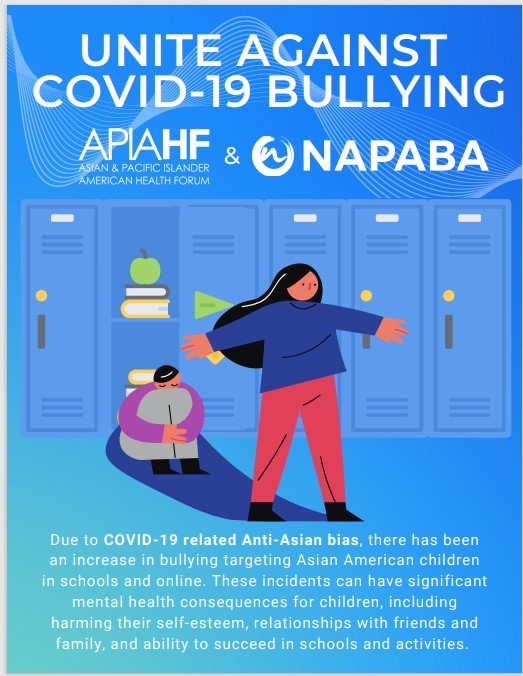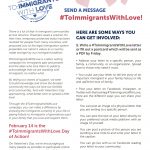For Immediate Release:
Date: May 20, 2021
Contact: Priya Purandare, Executive Director
WASHINGTON – Today, President Biden signed into the law the COVID-19 Hate Crimes Act introduced by Senator Mazie Hirono (D-HI) and Representative Grace Meng (D-NY) in the House. This legislation requires that the U.S. Department of Justice designate a point person whose sole responsibility is to facilitate the expedited review of hate crimes during the COVID-19 pandemic and to expand public education campaigns aimed at raising awareness of hate crimes. The Justice Department shall also issue guidance on greater accessibility for online hate crimes reporting for victims in multiple languages and for those with disabilities. The law also incorporates the Jabara-Heyer No HATE ACT Act which increases resources for training on identifying and classifying hate crimes.
“NAPABA thanks President Biden for signing into law the COVID-19 Hate Crimes Act, which answers the call for greater resources to improve education, training, reporting, and data collection on hate crimes in this country,” said NAPABA President A.B. Cruz III. “This law is a strong step forward to stem the ongoing tide of anti-Asian hate, bias and violence.”
The legislation also authorizes grants for states to create state-run hate crimes reporting hotlines and crime reduction programs to prevent, address, or respond to hate crimes. Finally, for individuals convicted of federal hate crime offenses and placed on supervised release, the bill allows a court to order that the individual participate in educational classes or community service directly related to the community harmed by the defendant’s offense, as a condition of supervised release.
In response to the surge in attacks against Asian Americans in the wake of the pandemic, NAPABA in partnership with the Asian & Pacific Islander American Health Forum (APIAHF) have produced a hate crimes reporting toolkit – translated into 25 languages and English – the single largest collection of such different AAPI-language materials assembled, that provides basic and critical information for victims, community based organizations, and community leaders.
The COVID-19 Hate Crimes Bill was introduced by Senator Mazie Hirono (D-HI) in the Senate, and Representative Grace Meng (D-NY) in the House. The Jabara-Heyer NO HATE Act was introduced by U.S. Senators Richard Blumenthal (D-CT) and Jerry Moran (R-KS) and U.S. Representatives Don Beyer (D-VA), Fred Upton (R-MI), Judy Chu (D-CA), and Vern Buchanan (R-FL). NAPABA thanks them for their leadership.
###
The National Asian Pacific American Bar Association (NAPABA) in the largest Asian Pacific American membership organization representing the interests of approximately 50,000 legal professionals and nearly 90 national, state, and local Asian Pacific American bar associations. NAPABA is a leader in addressing civil rights issues confronting Asian Pacific American communities. Through its national network, NAPABA provides a strong voice for increased diversity of the federal and state judiciaries, advocates for equal opportunity in the workplace, works to eliminate hate crimes and anti-immigrant sentiment, and promotes the professional development of people of color in the legal profession.




